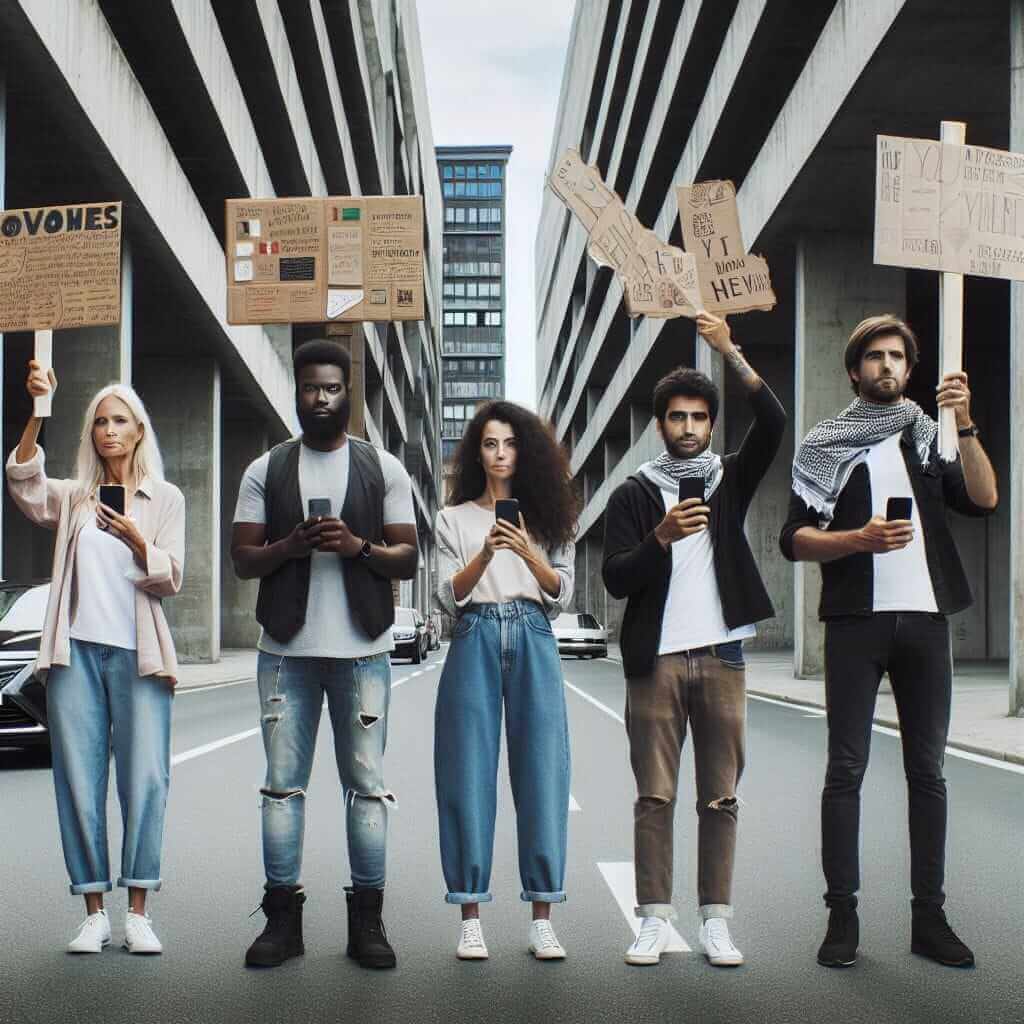In recent years, the topic of social media’s influence on political activism has increasingly appeared in the IELTS Writing Task 2. This analysis aims to provide an in-depth look into this theme, offering students the opportunity to develop their writing skills and understand how to approach similar topics in the exam.
The Prevalence of the Topic in IELTS
Having analyzed past IELTS exams and various relevant resources, it’s clear that social media and its impact on political activism is a popular topic. This can be attributed to the growing discussion around digital media’s role in shaping public opinion and grassroots movements. Therefore, it’s critical for students to familiarize themselves with this topic and related vocabulary, as the likelihood of encountering it in future exams remains high.
Sample IELTS Task 2 Question
Below is a sample IELTS Task 2 question based on the real exams:
In recent years, social media has played a significant role in political activism. Some people believe this is a positive development, while others argue that it has more negative consequences. Discuss both views and give your own opinion.
Analysis of the Question
Understanding the Task
- Topic: The role of social media in political activism.
- Task Requirements: Discuss both the positive and negative aspects of social media in political activism and provide your own opinion.
Identifying Keywords and LSI Keywords
- Main Keywords: Social media, political activism
- LSI Keywords: Digital media, public opinion, social movements, online platforms, political mobilization
Sample Answer
Introduction
Social media’s influence on political activism has become a topic of intense debate. While some argue that it has revolutionized political engagement, others believe it has led to the dissemination of misinformation and societal division. This essay will discuss both perspectives and argue that despite the challenges, the advantages of social media in political activism outweigh the drawbacks.
Body Paragraph 1: Positive Aspects
One of the most significant benefits of social media in political activism is its ability to mobilize large groups of people quickly and efficiently. Online platforms like Twitter and Facebook have been instrumental in organizing protests and rallies, such as the Arab Spring and the global climate strikes. Additionally, social media provides a voice to those who might otherwise be marginalized in traditional media. For instance, grassroots movements and social justice campaigns have gained significant traction through online networks, giving them visibility and influence they wouldn’t have achieved otherwise.

Body Paragraph 2: Negative Aspects
On the other hand, the use of social media in political activism is not without its pitfalls. One major concern is the spread of misinformation and fake news, which can lead to confusion and skewed public perception. In extreme cases, this can incite violence and unrest, as observed during the Capitol riots in the United States. Furthermore, the echo chamber effect on social media platforms can create polarized communities, amplifying division rather than fostering constructive dialogue.
Body Paragraph 3: Opinion
In my opinion, while the negative aspects of social media cannot be ignored, the potential for positive change it holds in political activism is substantial. With appropriate regulations and public awareness, the pitfalls can be managed. The democratizing power of the internet, combined with the active engagement it fosters among citizens, makes social media an invaluable tool for political change.
Conclusion
In conclusion, social media has played a pivotal role in modern political activism, providing both opportunities and challenges. The ability to organize and amplify voices is a powerful force for good, provided the risks of misinformation and polarization are addressed. As such, the role of social media in political activism should be seen as a positive development that needs careful management.
Word Count: 350 words
Key Tips for Writing on this Topic
- Vocabulary: Utilize specific terminology related to social media and political activism. Avoid repetitive language to showcase a wide range of vocabulary.
- Structure: Clearly outline both sides of the argument and provide a balanced view. Use linking words and phrases to connect ideas smoothly.
- Clarity: Ensure each paragraph has a clear main idea. Avoid overly complex sentences that may confuse the reader.
- Evidence: Use real-life examples to support your arguments. Referencing well-known events can make your essay more compelling.
Useful Vocabulary
- Mobilize (v) /ˈmoʊbəˌlaɪz/: To organize or prepare something, such as a group of people, for a purpose or activity.
- Grassroots (adj) /ˈɡræsˌruts/: Of or from the people, the most basic level.
- Dissemination (n) /dɪˌsɛməˈneɪʃən/: The act of spreading something, especially information, widely.
- Misinformation (n) /ˌmɪsɪnfərˈmeɪʃən/: False or inaccurate information, especially that which is deliberately intended to deceive.
- Polarization (n) /ˌpoʊlərɪˈzeɪʃən/: Division into two sharply contrasting groups or sets of opinions or beliefs.
Conclusion
By understanding the role of social media in political activism and practicing with similar topics, students can enhance their competency in addressing IELTS Writing Task 2 questions. Future topics might include the impact of digital media on democracy or the role of online campaigns in influencing legislation. Students are encouraged to continue exploring such themes to be well-prepared for their exams.